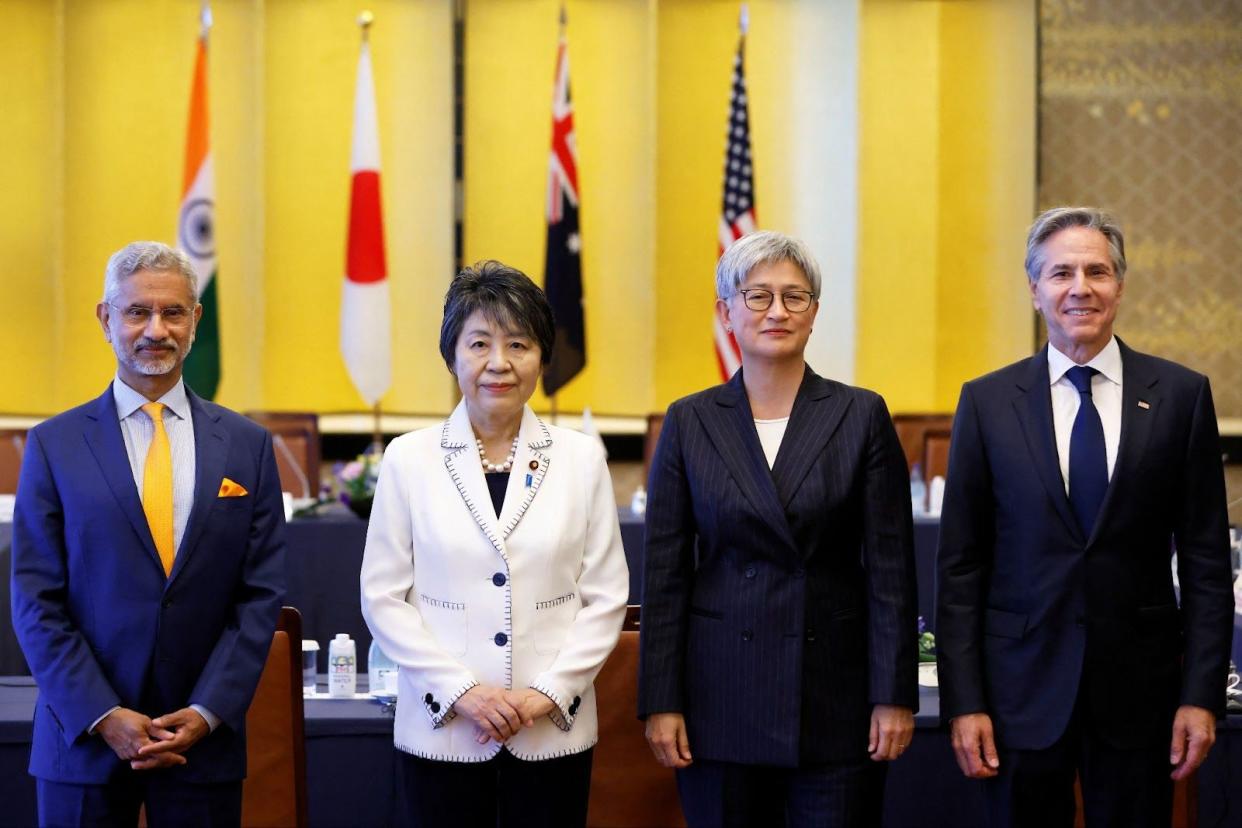Quad nations warn of Chinese military posturing in South China Sea

Insights from the Australian Broadcasting Corporation, Asia Times, and the South China Morning Post
The News
Top officials from the “Quad” — a loose alliance between Australia, India, Japan, and the US — decried China’s military positions in Asian waters following talks on Monday.
“We are seriously concerned about the situation in the East and South China Seas and reiterate our strong opposition to any unilateral actions that seek to change the status quo by force or coercion,” the nations’ foreign ministers wrote in a joint statement.
In response, Beijing warned Washington and Tokyo to “stop creating imaginary enemies,” urging “the US and Japan to immediately stop interfering in China’s internal affairs.”
SIGNALS
Beijing attempts to pressure nations not to attend Taiwan summit
Representatives from China have reportedly attempted to pressure several nations to withdraw from the Inter-Parliamentary Alliance on China summit in Taiwan. Speaking to the Australian Broadcasting Corporation, Sanela Klarić, a member of Parliament in Bosnia, described coercive efforts by China to prevent her traveling to Taipei. Luke de Pulford, IPAC’s director, said that Beijing appeared to have ramped up communications with conference attendees this year: Typically, representatives from Chinese embassies have contacted politicians that attend the summit after the event, not before.
China has argued against Washington’s attempt for ‘Asian NATO’
In May, Chinese officials accused the US of trying to establish an “Asian NATO” to block Beijing — a description analysts have argued is Chinese propaganda aimed at shaping “public narrative,” the South China Morning Post noted last month. It’s unlikely that an Asia-focused NATO would materialize, with diplomats arguing that informal alliances were more probable. And even as China has become an increasing feature of conversations at NATO summits, the alliance’s members have been hesitant to expand to include Asia: “Transforming NATO into an Indo-Pacific security guarantor… would create internal difficulties,” Daniel R. DePetris, a fellow at the think tank Defense Priorities, wrote.

